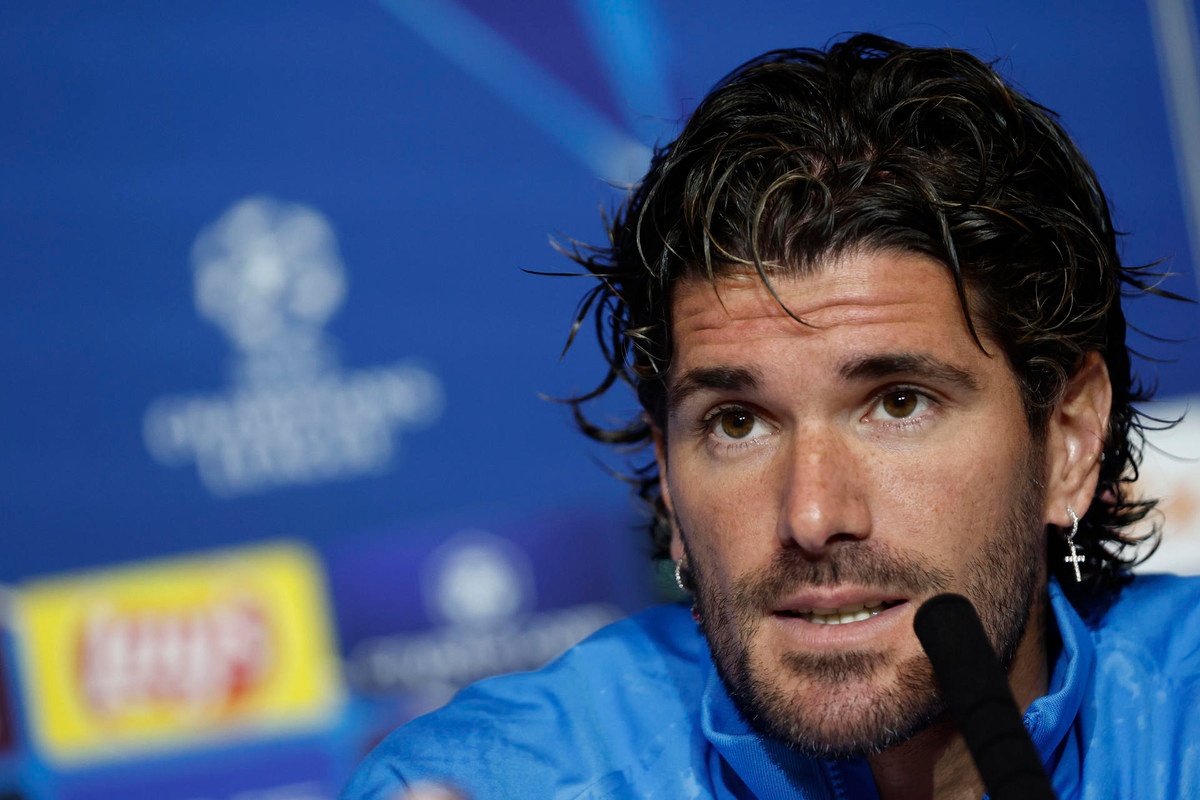EURO 2024 - All you need to know about the finals & the road ahead!

The UEFA European Football Championship, commonly referred to as UEFA Euro 2024 or simply Euro 2024, will be the 17th edition of the UEFA European Championship, the quadrennial international football championship organized by UEFA for the men's national teams of its member associations. It will be held in Germany from June 14 to July 14, 2024.
1 year ago
Twenty-four teams will compete in the tournament, played in ten stadiums in ten cities across Germany. Opening games have brought spectacular entertainment in every Euro competition on and off the field. The opening match will be played at the Munich Football Arena on June 14, and the final will be at the Olympiastadion in Berlin on July 14. Tickets for the opening game and tickets for the final will be a few of the toughest to get.
The tournament will be played in a single-elimination format, with the teams divided into six groups of four. The top two teams from each group will advance to the knockout stage, consisting of quarterfinals, semifinals, and a final.
The defending champions are Italy, who won the 2020 tournament. Some of the favorites for the 2024 tournament include France, England, Germany, Spain, and Portugal.
The tournament will be a major sporting event, with millions of fans worldwide tuning in to watch. It is also expected to be a significant economic boost for Germany, with an estimated economic impact of €2.4 billion.
The tournament will be Germany's first major international football tournament since the 2006 FIFA World Cup. The 2006 World Cup was a huge success, and the organizers hope Euro 2024 will be even more successful.
The tournament is sure to be a memorable event, and it is one that football fans worldwide will look forward to making the trip with tickets.
Here's all you need to know about the preparation and the tournament.
The host cities for EURO 2024 include:
1. Berlin - Olympiastadion Berlin (capacity: 70,000)
2. Cologne - Cologne Stadium (capacity: 47,000)
3. Dortmund - BVB Stadion Dortmund (capacity: 66,000)
4. Dusseldorf - Düsseldorf Arena (capacity: 47,000)
5. Frankfurt - Frankfurt Arena (capacity: 48,000)
6. Gelsenkirchen - Arena AufSchalke (capacity: 50,000)
7. Hamburg - Volksparkstadion Hamburg (capacity: 50,000)
8. Leipzig - Leipzig Stadium (capacity: 42,000)
9. Munich - Munich Football Arena (capacity: 67,000)
10. Stuttgart - Stuttgart Arena (capacity: 54,000)
These ten venues include nine stadiums used during the 2006 FIFA World Cup and the Düsseldorf Arena. Notably, the Munich Football Arena will be hosting matches for the second consecutive EURO tournament, having also been a host venue for UEFA EURO 2020.
The Munich Football Arena, also known as the Allianz Arena, is one of the Top 5 football grounds, and getting tickets for this venue will be a dream come true for many football fans.
A total of 24 teams will qualify for EURO 2024. Germany automatically qualifies as the host nation, leaving 23 spots filled through the European Qualifiers and playoffs.
We have the final rounds of qualification coming alive in September and will run through until the end of the year. Tickets for the remaining qualifiers are already in limited numbers for the games involving the top-tier nations.
The qualifying process involves ten groups consisting of five or six teams each. Teams compete in a home and away round-robin format within their group.
The winners and runners-up of each group will directly advance to the final tournament. The remaining three spots will be determined through playoffs, featuring 12 teams selected based on their performance in the 2022/23 UEFA Nations League.
Here are the teams and their respective groups:
Group A: Spain, Scotland, Norway, Georgia, Cyprus
Group B: Netherlands, France, Republic of Ireland, Greece, Gibraltar
Group C: Italy, England, Ukraine, North Macedonia, Malta
Group D: Croatia, Wales, Armenia, Turkey, Latvia
Group E: Poland, Czech Republic, Albania, Faroe Islands, Moldova
Group F: Belgium, Austria, Sweden, Azerbaijan, Estonia
Group G: Hungary, Serbia, Montenegro, Bulgaria, Lithuania
Group H: Denmark, Finland, Slovenia, Kazakhstan, Northern Ireland, San Marino
Group I: Switzerland, Israel, Romania, Kosovo, Belarus, Andorra
Group J: Portugal, Bosnia and Herzegovina, Iceland, Luxembourg, Slovakia, Liechtenstein
These teams will compete for a place in the final tournament, with the top two from each group securing direct qualification.
The tournament format for UEFA EURO 2024 will be the same as UEFA EURO 2020. The top two teams from each of the six final tournament groups will advance to the round of 16. The four best third-placed teams will also progress to the knockout stage, resulting in 16 teams.
After the group stage, the tournament will continue with single-elimination knockout matches, including the round of 16, quarterfinals, semifinals, and the final. The winner of the final will be crowned the UEFA EURO 2024 champion.
Key Dates:
- Qualifying: The qualifying matches will occur from March to November 2023, with group-stage matches scheduled throughout this period.
- Playoffs: The playoff semifinals will be held on March 21, 2024, followed by the playoff finals on March 26, 2024.
- Final Tournament: The final tournament draw will be conducted on December 2, 2023. The opening game is scheduled for June 14, 2024, at the Munich Football Arena, and the final will be held on July 14, 2024, at the Olympiastadion Berlin.
Each host city for UEFA EURO 2024 has designated city ambassadors. The ambassadors are notable figures associated with football or the respective cities. Here are the city ambassadors for some of the host cities:
- Berlin: Kevin-Prince Boateng
- Cologne: Harald Schumacher
- Dortmund: Roman Weidenfeller, Annike Krahn
- Düsseldorf: Martina Voss-Tecklenburg, Sandra Mikolaschek, Selin Oruz
- Frankfurt: Alex Meier, Deborah Levi
- Gelsenkirchen: Gerald Asamoah
- Hamburg: Patrick Esume
- Leipzig: Professor Dr. Jörg Junhold, Anja Mittag, Jürgen Zielinski
- Munich: Dr. Felix Brych
- Stuttgart: Cacau, Niko Kappel, Eli Seitz
The UEFA European Championship has witnessed a rich tapestry of triumphs, with ten nations securing the prestigious title. Spain and Germany are among the most decorated teams in this quadrennial spectacle, each capturing the trophy on three memorable occasions.
Germany, formerly known as West Germany, etched their name in football history as European champions in 1972, 1980, and 1996. Spain, displaying their flair and finesse, claimed the crown in 1964, 2008, and 2012, etching their legacy as the sole team to secure consecutive championships.
Spain's remarkable victory in 2012 against Italy stands as a pinnacle of excellence, with the match witnessing a goal-laden spectacle culminating in a resounding 4-0 triumph.
Germany's prowess in the Euros cannot be understated, as they have contested a record six tournament finals, showcasing their consistency and pedigree on the grandest stage.
Joining this illustrious club of European heavyweights are Portugal, Italy, Denmark, Netherlands, the Soviet Union, Greece, and Czechoslovakia, each leaving an indelible mark with their memorable triumphs.
While the UEFA European Championship tradition entails hosting the tournament in a single or dual-nation setting, the 2020 edition presented a captivating deviation. In a splendid celebration of the competition's 60th anniversary, the matches were dispersed across 11 fascinating European cities, fostering unity and diversity.
Notably, France last tasted glory on home soil in 1984, leaving an indelible mark as the ultimate victors of the UEFA European Championship in their cherished backyard.
In this rich tapestry of triumphs, the Euros have provided countless unforgettable moments, showcasing the beauty and drama of European football at its finest. As new chapters are written, and new champions arise, the stage is set for another thrilling chapter in the storied history of this esteemed tournament.
Tickets for the final set of qualifiers are now open for fans to purchase.
The tournament will be played in a single-elimination format, with the teams divided into six groups of four. The top two teams from each group will advance to the knockout stage, consisting of quarterfinals, semifinals, and a final.
The defending champions are Italy, who won the 2020 tournament. Some of the favorites for the 2024 tournament include France, England, Germany, Spain, and Portugal.
The tournament will be a major sporting event, with millions of fans worldwide tuning in to watch. It is also expected to be a significant economic boost for Germany, with an estimated economic impact of €2.4 billion.
The tournament will be Germany's first major international football tournament since the 2006 FIFA World Cup. The 2006 World Cup was a huge success, and the organizers hope Euro 2024 will be even more successful.
The tournament is sure to be a memorable event, and it is one that football fans worldwide will look forward to making the trip with tickets.
Here's all you need to know about the preparation and the tournament.
The host cities for EURO 2024 include:
1. Berlin - Olympiastadion Berlin (capacity: 70,000)
2. Cologne - Cologne Stadium (capacity: 47,000)
3. Dortmund - BVB Stadion Dortmund (capacity: 66,000)
4. Dusseldorf - Düsseldorf Arena (capacity: 47,000)
5. Frankfurt - Frankfurt Arena (capacity: 48,000)
6. Gelsenkirchen - Arena AufSchalke (capacity: 50,000)
7. Hamburg - Volksparkstadion Hamburg (capacity: 50,000)
8. Leipzig - Leipzig Stadium (capacity: 42,000)
9. Munich - Munich Football Arena (capacity: 67,000)
10. Stuttgart - Stuttgart Arena (capacity: 54,000)
These ten venues include nine stadiums used during the 2006 FIFA World Cup and the Düsseldorf Arena. Notably, the Munich Football Arena will be hosting matches for the second consecutive EURO tournament, having also been a host venue for UEFA EURO 2020.
The Munich Football Arena, also known as the Allianz Arena, is one of the Top 5 football grounds, and getting tickets for this venue will be a dream come true for many football fans.
A total of 24 teams will qualify for EURO 2024. Germany automatically qualifies as the host nation, leaving 23 spots filled through the European Qualifiers and playoffs.
We have the final rounds of qualification coming alive in September and will run through until the end of the year. Tickets for the remaining qualifiers are already in limited numbers for the games involving the top-tier nations.
The qualifying process involves ten groups consisting of five or six teams each. Teams compete in a home and away round-robin format within their group.
The winners and runners-up of each group will directly advance to the final tournament. The remaining three spots will be determined through playoffs, featuring 12 teams selected based on their performance in the 2022/23 UEFA Nations League.
Here are the teams and their respective groups:
Group A: Spain, Scotland, Norway, Georgia, Cyprus
Group B: Netherlands, France, Republic of Ireland, Greece, Gibraltar
Group C: Italy, England, Ukraine, North Macedonia, Malta
Group D: Croatia, Wales, Armenia, Turkey, Latvia
Group E: Poland, Czech Republic, Albania, Faroe Islands, Moldova
Group F: Belgium, Austria, Sweden, Azerbaijan, Estonia
Group G: Hungary, Serbia, Montenegro, Bulgaria, Lithuania
Group H: Denmark, Finland, Slovenia, Kazakhstan, Northern Ireland, San Marino
Group I: Switzerland, Israel, Romania, Kosovo, Belarus, Andorra
Group J: Portugal, Bosnia and Herzegovina, Iceland, Luxembourg, Slovakia, Liechtenstein
These teams will compete for a place in the final tournament, with the top two from each group securing direct qualification.
The tournament format for UEFA EURO 2024 will be the same as UEFA EURO 2020. The top two teams from each of the six final tournament groups will advance to the round of 16. The four best third-placed teams will also progress to the knockout stage, resulting in 16 teams.
After the group stage, the tournament will continue with single-elimination knockout matches, including the round of 16, quarterfinals, semifinals, and the final. The winner of the final will be crowned the UEFA EURO 2024 champion.
Key Dates:
- Qualifying: The qualifying matches will occur from March to November 2023, with group-stage matches scheduled throughout this period.
- Playoffs: The playoff semifinals will be held on March 21, 2024, followed by the playoff finals on March 26, 2024.
- Final Tournament: The final tournament draw will be conducted on December 2, 2023. The opening game is scheduled for June 14, 2024, at the Munich Football Arena, and the final will be held on July 14, 2024, at the Olympiastadion Berlin.
Each host city for UEFA EURO 2024 has designated city ambassadors. The ambassadors are notable figures associated with football or the respective cities. Here are the city ambassadors for some of the host cities:
- Berlin: Kevin-Prince Boateng
- Cologne: Harald Schumacher
- Dortmund: Roman Weidenfeller, Annike Krahn
- Düsseldorf: Martina Voss-Tecklenburg, Sandra Mikolaschek, Selin Oruz
- Frankfurt: Alex Meier, Deborah Levi
- Gelsenkirchen: Gerald Asamoah
- Hamburg: Patrick Esume
- Leipzig: Professor Dr. Jörg Junhold, Anja Mittag, Jürgen Zielinski
- Munich: Dr. Felix Brych
- Stuttgart: Cacau, Niko Kappel, Eli Seitz
The UEFA European Championship has witnessed a rich tapestry of triumphs, with ten nations securing the prestigious title. Spain and Germany are among the most decorated teams in this quadrennial spectacle, each capturing the trophy on three memorable occasions.
Germany, formerly known as West Germany, etched their name in football history as European champions in 1972, 1980, and 1996. Spain, displaying their flair and finesse, claimed the crown in 1964, 2008, and 2012, etching their legacy as the sole team to secure consecutive championships.
Spain's remarkable victory in 2012 against Italy stands as a pinnacle of excellence, with the match witnessing a goal-laden spectacle culminating in a resounding 4-0 triumph.
Germany's prowess in the Euros cannot be understated, as they have contested a record six tournament finals, showcasing their consistency and pedigree on the grandest stage.
Joining this illustrious club of European heavyweights are Portugal, Italy, Denmark, Netherlands, the Soviet Union, Greece, and Czechoslovakia, each leaving an indelible mark with their memorable triumphs.
While the UEFA European Championship tradition entails hosting the tournament in a single or dual-nation setting, the 2020 edition presented a captivating deviation. In a splendid celebration of the competition's 60th anniversary, the matches were dispersed across 11 fascinating European cities, fostering unity and diversity.
Notably, France last tasted glory on home soil in 1984, leaving an indelible mark as the ultimate victors of the UEFA European Championship in their cherished backyard.
In this rich tapestry of triumphs, the Euros have provided countless unforgettable moments, showcasing the beauty and drama of European football at its finest. As new chapters are written, and new champions arise, the stage is set for another thrilling chapter in the storied history of this esteemed tournament.
Tickets for the final set of qualifiers are now open for fans to purchase.







Comments